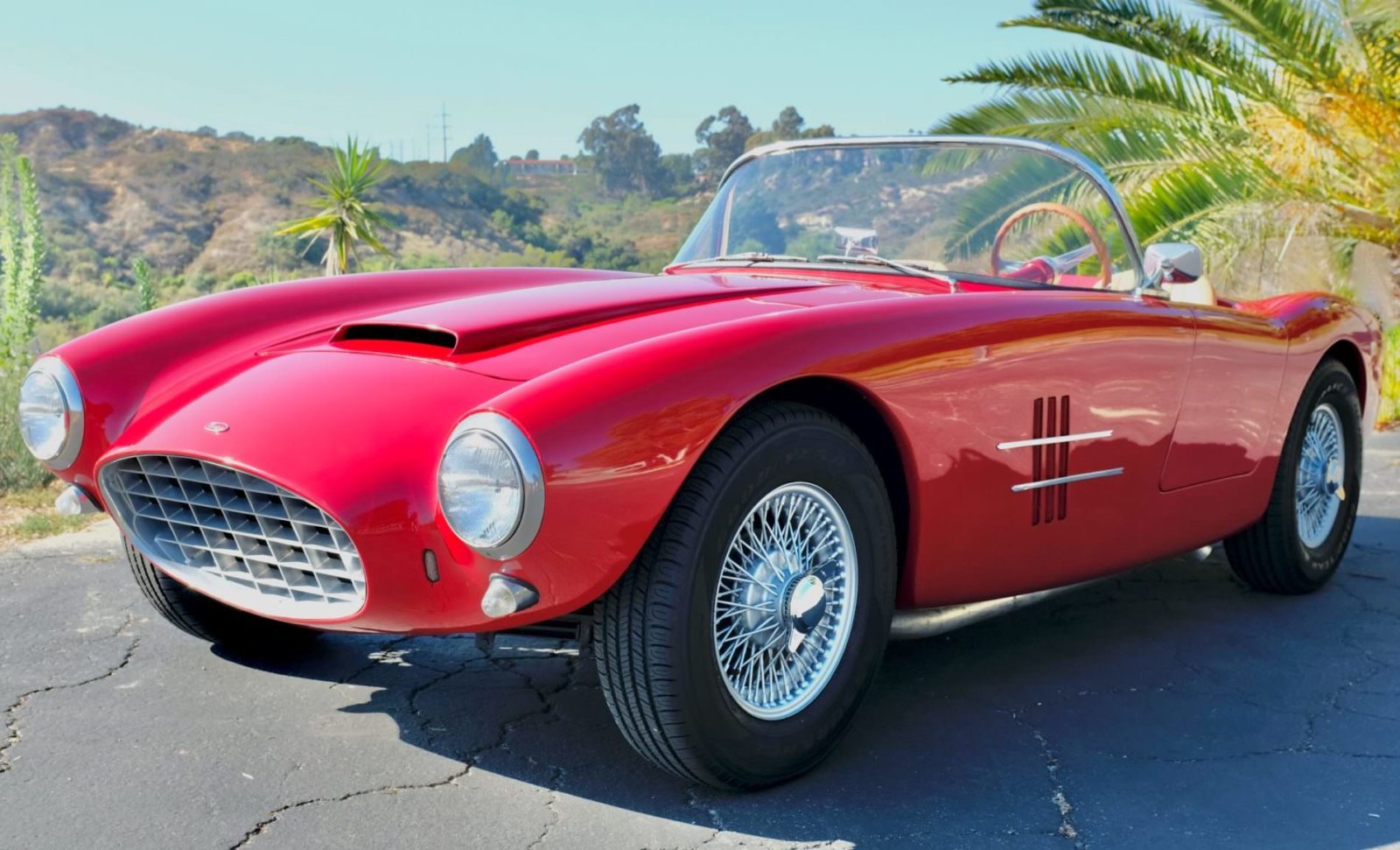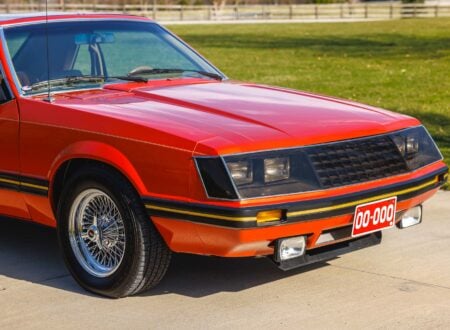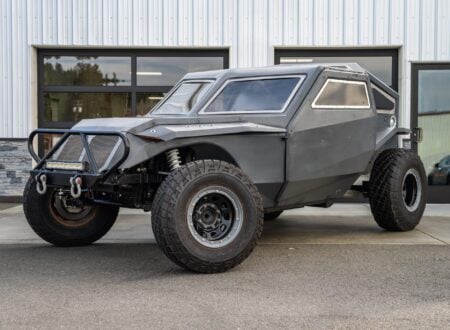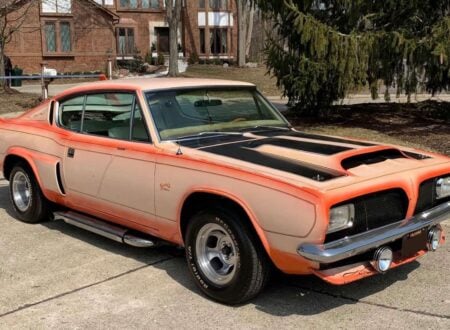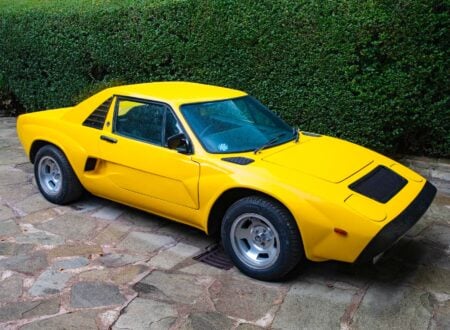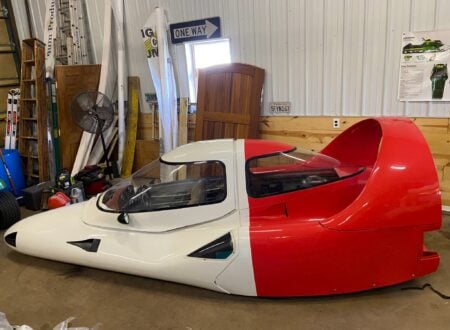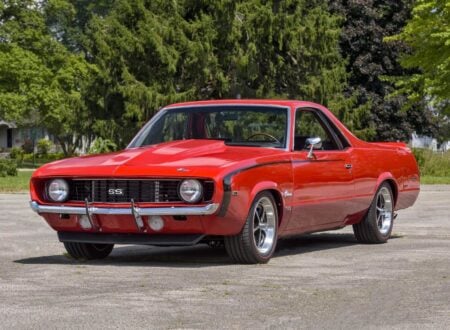In February of 1957 the Byers SR-100 was featured on the cover of Road & Track Magazine, John Bond, the owner of the magazine, proclaimed that it was “The Most Beautiful Car In The World.”
Bond was so taken with the design that he actually bought the kit and built one himself alongside company founder Jim Byers. It would be the only car that Bond would ever build himself from scratch.
Fast Facts – The Byers SR-100
- The name of the Byers SR-100 is relatively straightforward. Byers is the company founder’s surname, “SR” stands for “Sports Roadster” and “100” tells you the ideal wheelbase of the chassis that the body would be fitted to.
- Jim Byers started out in the booming homebuilt car industry in 1952, working on a fiberglass Victress sports car. He would go on to partner with Dick Jones to develop the Meteor SR-1 sports car in 1953.
- In 1955 Byers went his own way, he created a new version of the Meteor SR-1 body and called it the SR-100. He sold the fiberglass bodies via ads in the back of car magazines, customers would then fit their new body to the chassis of their choice, with a wheelbase of 100 inches.
- The Byers SR-100 you see here was built on a 1953 Kaiser Henry J chassis, it’s powered by a Ford 302 cubic inch (5.0 liter) Ford V8 which is mated to a 3-speed manual transmission. It has independent front suspension, a live axle rear, and four-wheel drum brakes.
Jim Byers And The Most Beautiful Car In The World
Jim Byers joined the fast-growing kit car world in 1952 when he got his start working on the first fiberglass Victress body, a handsome design that had been created by industry pioneers Doc Boyce-Smith and Hugh Jorgensen.
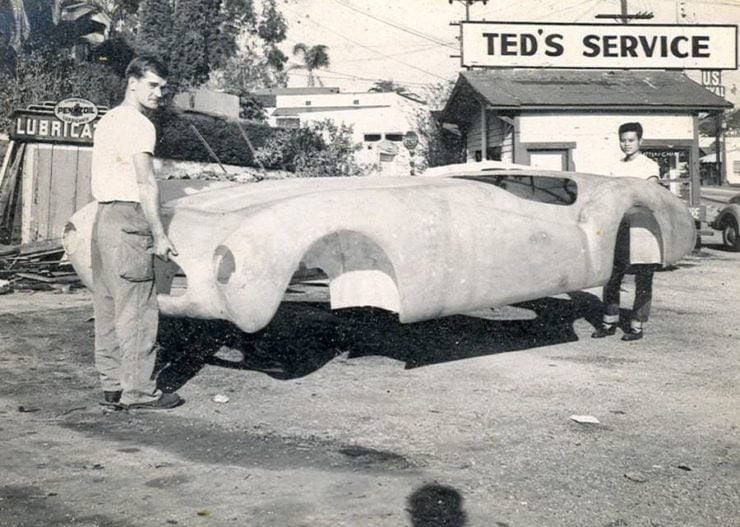

Jim’s time working with moulds and fiberglass on the Victress gave him the hands-on experience he needed for his next project, he worked with Dick Jones to create the Meteor SR-1 sports car in 1953.
The Meteor made its public debut at the 1953 Petersen Motorama at the Pan Pacific Auditorium in Los Angeles, California and it received a warm reception. Byers and Jones decided to go their own separate ways in 1955, it was an amicable split, and they each continued developing their own designs.
Jim made a slew of improvements and modifications to the Meteor and released it later in 1955 as the Byers SR-100. A year later he released the closely related Byers SR-90, a sports car body designed for 90 inch wheelbase chassis.
Between 1955 and 1963 approximately 25 examples of the Byers SR-100 body were sold, it’s not known how many where built into complete cars by those who ordered them. Fiberglass automaker Kellison bought the moulds and rights to the Byers design and sold them in the 1960s, another company bought the rights to the SR-90.
The Byers SR-100
Developed and introduced in 1955, the Byers SR-100 was a lightweight fiberglass body designed to be fitted to chassis with a 100 inch wheelbase. 99 and 101 inch wheelbases could also be accommodated without too much trouble.
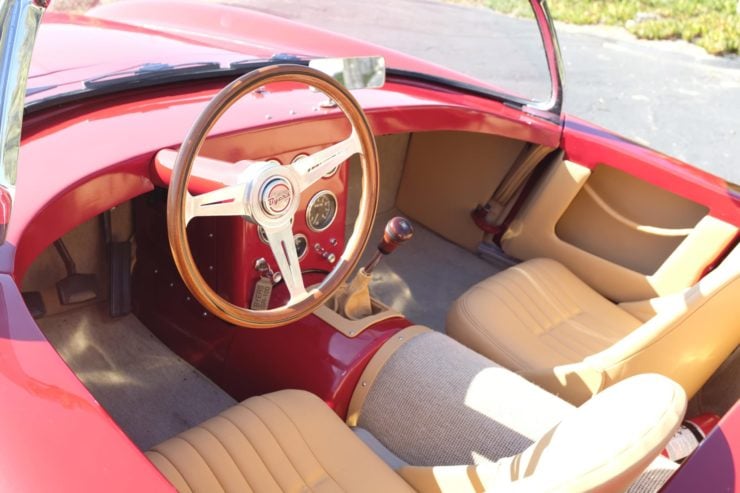

Jim Byers advertised his sports car in the back of car magazines, alongside a number of similar low-volume fiberglass body manufactures. The 1950s was a boom time for the custom and kit car industries, fiberglass technology seemed to be taking over the world – it was essentially the carbon fiber equivalent of the era.
When ordering your Byers SR-100 you would typically speak with Jim Byers directly, modifications could be made to the body when needed before shipment. Customers needed to source their own chassis, most chose a platform with independent front suspension and a live axle rear.
Engine choices did vary, though many chose a V8 for obvious reasons. The small block Chevrolet V8 had been introduced in 1954, pre-WWII Ford Flathead V8s were a cheaper option, and many cars had their engines and transmissions upgraded over time as there was little reason to keep the cars original.
It’s not know exactly how many SR-100s have survived to the modern day however there is a growing community of people dedicated to saving these cars and their fiberglass peers from the era, largely led by Geoff Hacker at Forgotten Fiberglass.
The 1959 Byers SR-100 Shown Here
The car you see here is a Byers SR-100 from 1959. The car was originally built on a 1953 Kaiser Henry J chassis, a chassis it still has today, but the original drivetrain is a mystery.
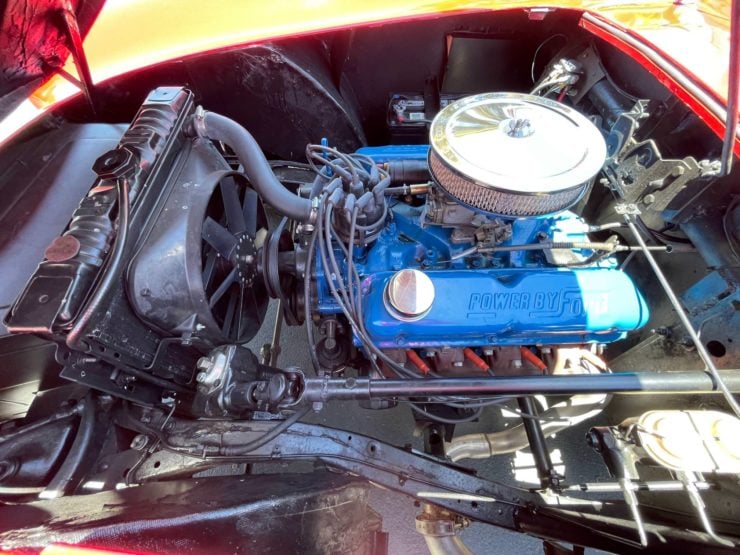

In the 1960s this car had its original engine and transmission removed and replaced with a more modern Ford 302 cubic inch V8 sourced from a 1968 Ford Mustang and paired with a 3-speed manual transmission.
This SR-100 was placed into storage in 1973 where it presumably remained until 2012 when it was acquired by the current owner who is now offering it for sale.
A series of refurbishments began in 2012 to bring the car back to show-ready condition. It was repaired in bright red and a Corvette windshield was sourced and fitted – it looks good and it makes it far easier to find replacement glass in the future if needed.
The interior was re-trimmed with tan leather upholstery, 5″ wire wheels with knock-off hubs were added, a side-mounted exhaust system was fitted, the front fenders were given vents and a discreet hood scoop was added to ensure plenty of fresh cool airflow.
The car also has Stewart Warner instrumentation, a wood-rimmed steering wheel, a Nardi shift knob, a dash-mounted mirror, a fire extinguisher, and lap belts.
The car is now being offered for sale on Bring A Trailer out of San Diego, California. If you’d like to read more about it or register to bid you can visit the listing here.
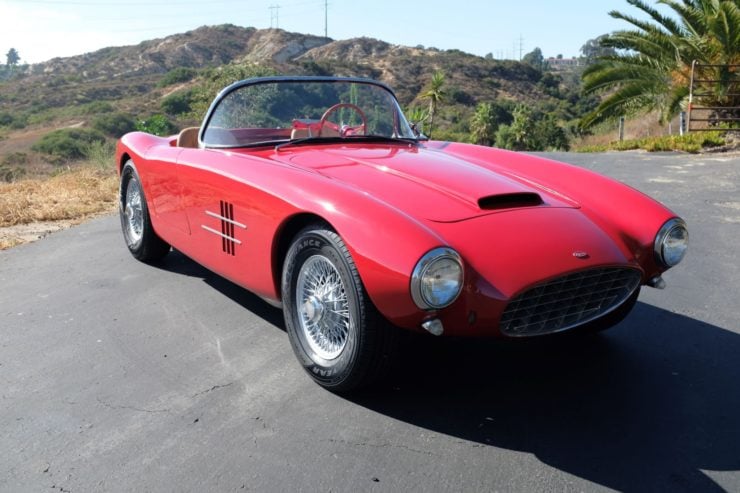
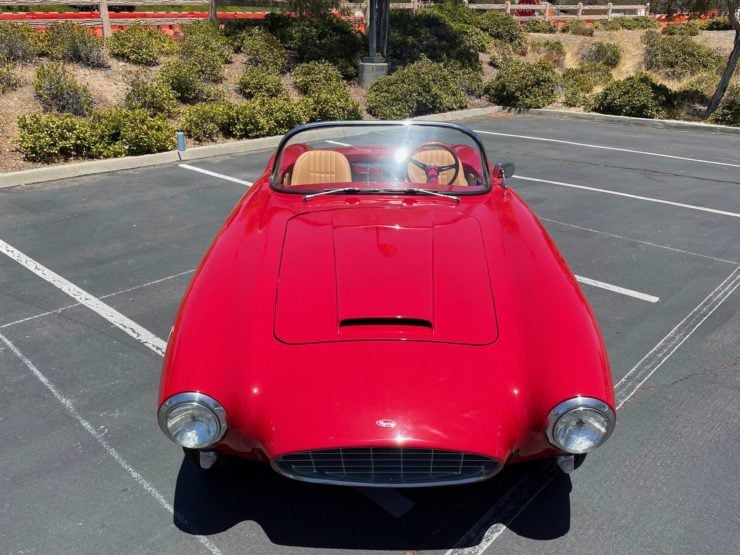
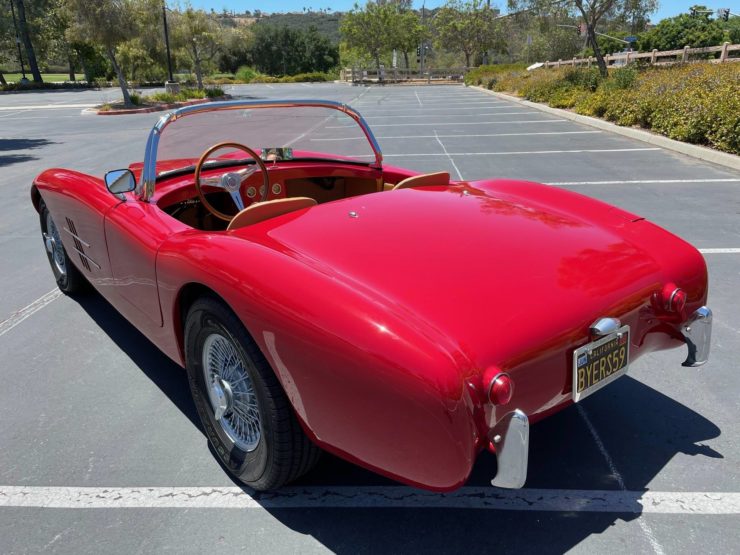
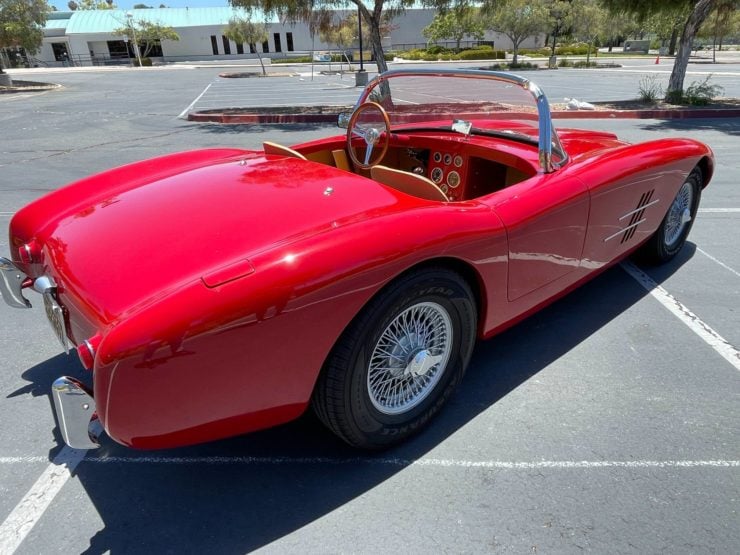
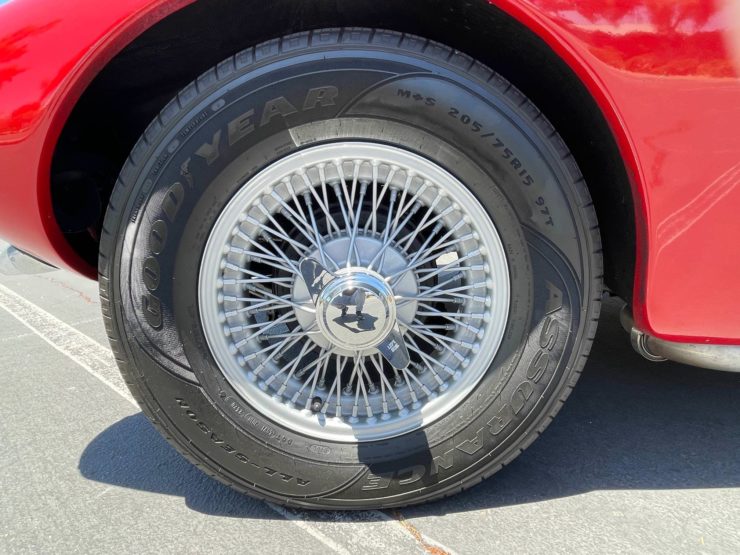
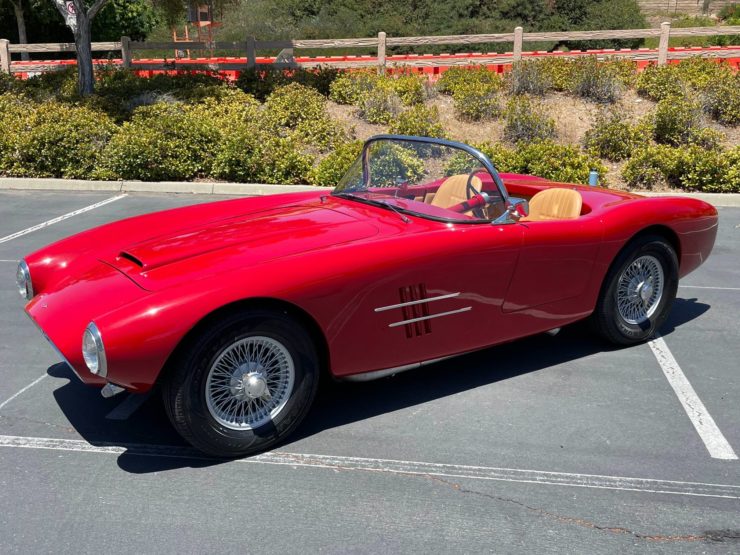
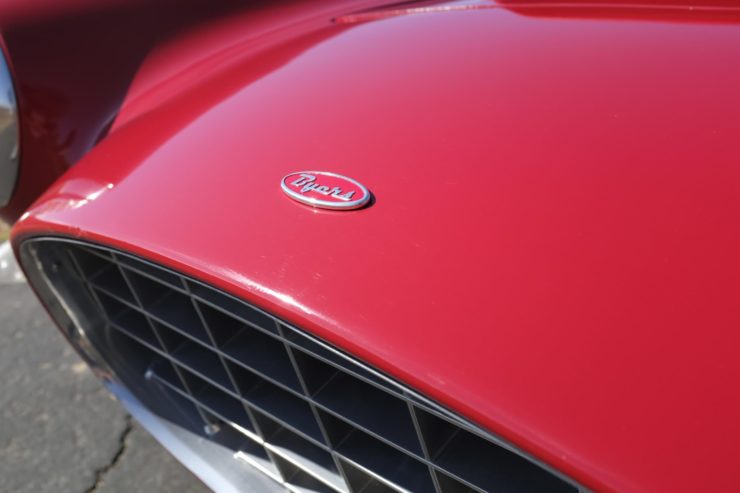
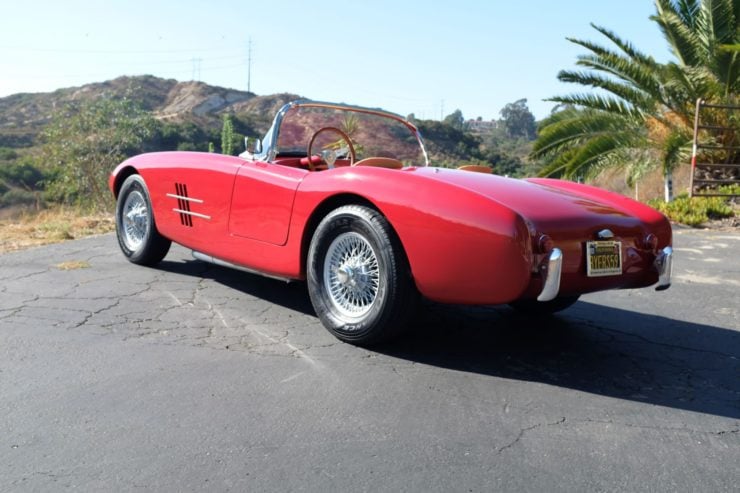
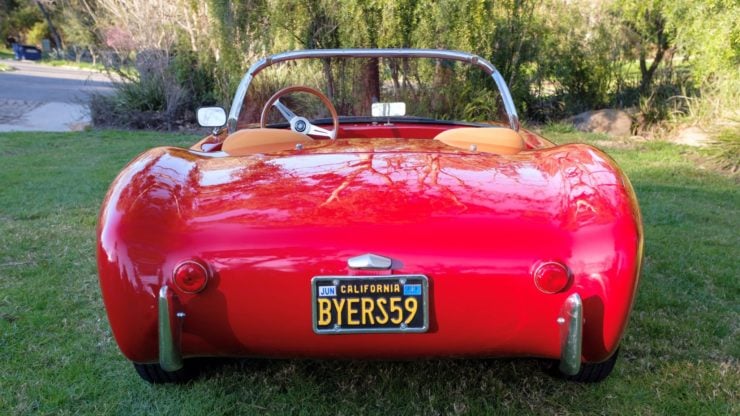
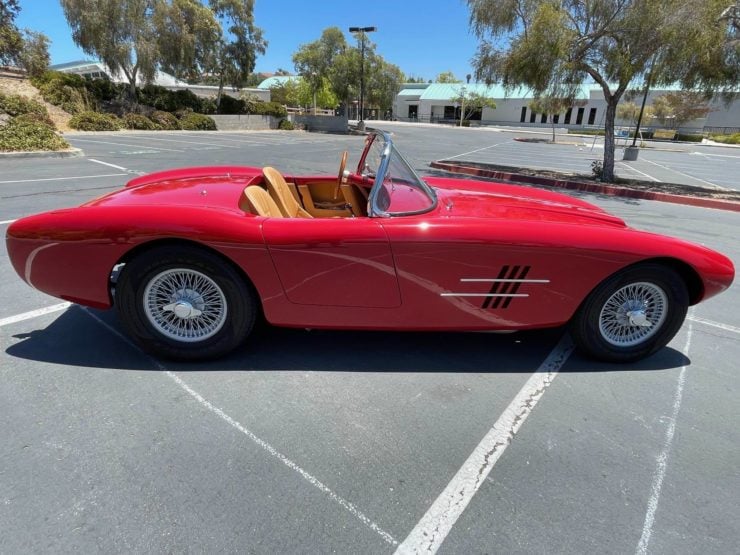
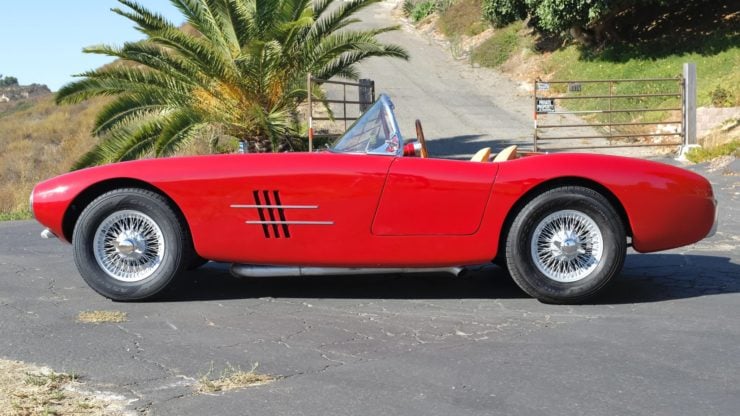
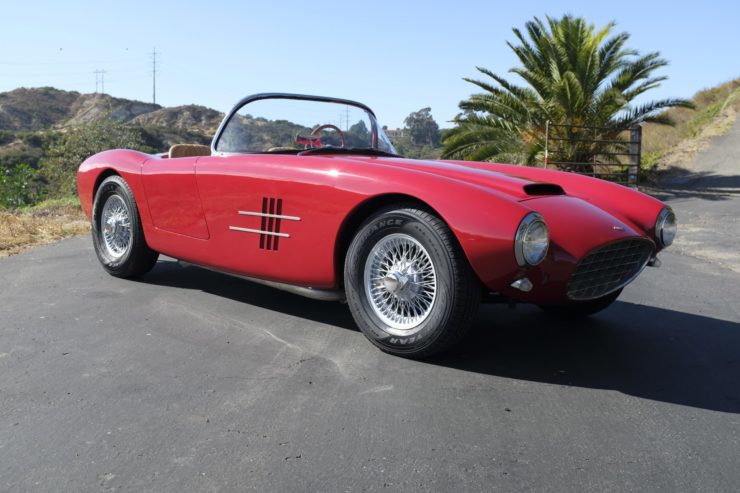
Images courtesy of Bring A Trailer

